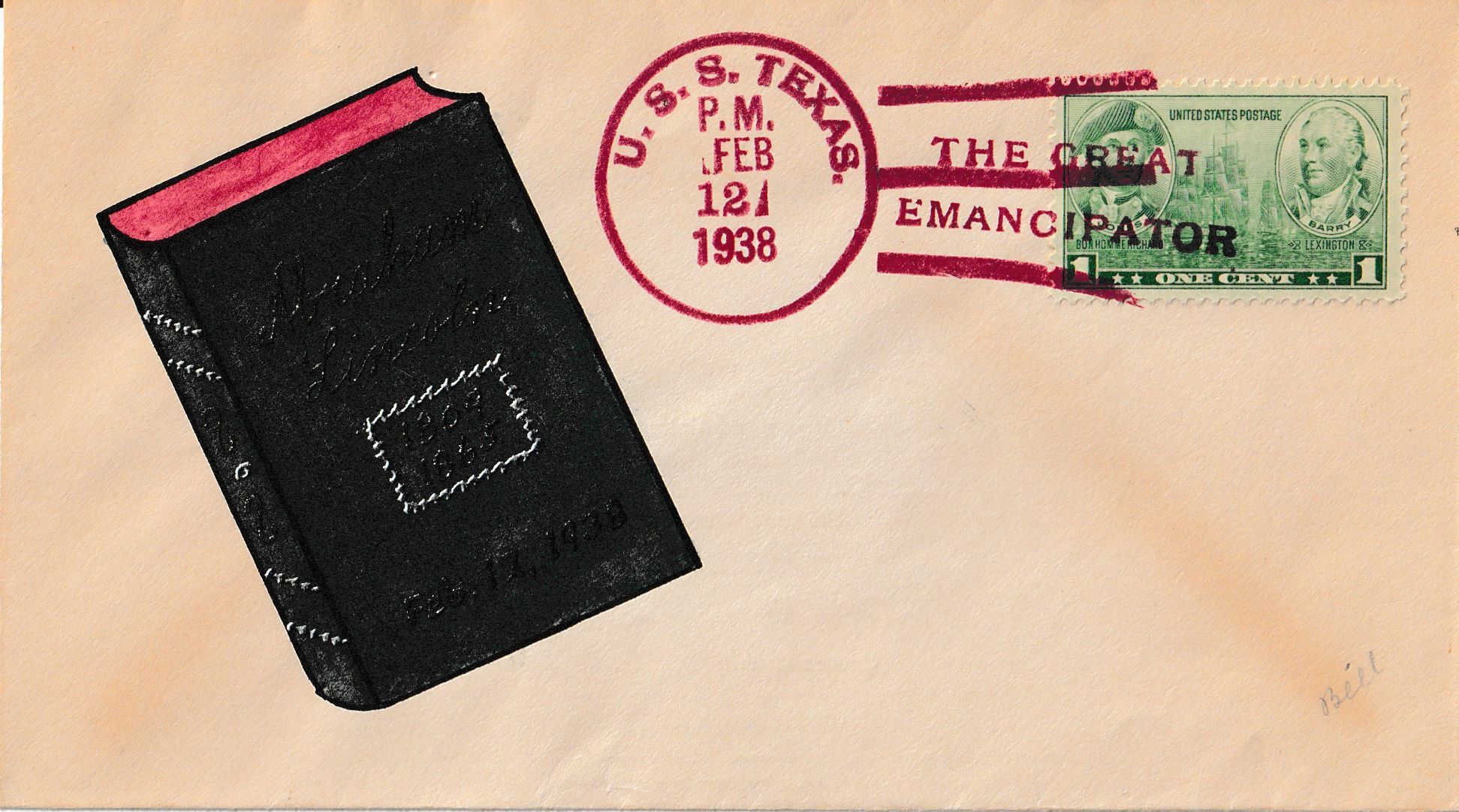Name/Title
USS Texas "Lincoln’s Birthday" [Cover]Description
Hand drawn Linto cachet (#39 of 40 made) commemorating Lincoln’s birthday. Posted aboard USS Texas on February 12, 1938 using the green 1-cent Navy commemorative stamp featuring Navy leaders John Paul Jones and John Barry and with THE GREAT / EMANCIPATOR inserted between the killer bars cancellation.Context
Abraham Lincoln, the sixteenth President of the United States, was born in a single-room log cabin on Sinking Spring Farm in LaRue County, Kentucky on February 12, 1809. Self-taught and from humble origins, Abraham Lincoln became one of the most revered and uniquely appealing United States Presidents. Known as Honest Abe, the Rail-splitter, and the Great Emancipator, Lincoln was a skilled orator who preserved the Union during the American Civil War and issued the Emancipation Proclamation.
When Lincoln left Illinois and headed east for his inauguration, he told the crowd at the Springfield railroad station that he confronted challenges equal only to those that had faced the nation’s first president: Washington had had to create a nation; Lincoln now had to preserve it. Lincoln’s election was itself evidence of the sectional discord that had ripped the United States apart during the 1850s, as slavery became a critical political and a moral issue. As Lincoln had remarked, “A house divided against itself [over slavery] cannot stand.” This proved prophetic with the collapse of the national party systems (the Whigs disappeared altogether) as North and South evolved into separate societies—one based on free labor, the other on slavery. The election of Lincoln prompted the South to begin to withdraw, or secede, from the Union. In his first inaugural address, Lincoln delivered a final plea to the South to remain, but to no avail. War broke out in April 1861 with the attempt by the Federal government to resupply South Carolina’s Fort Sumter. Despite the optimism of partisans on both sides that the war would be over quickly, it became a long, desperate, and exceptionally bloody conflict that would fundamentally reshape the nation.
The poet Steve Scafidi has characterized the challenges that faced Lincoln as like those confronted by a doctor trying to perform brain surgery while a dog gnaws at his leg. Lincoln’s tasks were staggering, both in detail and scope. Politically, he had to navigate between the many demanding factions and interests of the North. He also had the unprecedented task of organizing and prosecuting what would become the first industrial war, a conflict that ranged across the whole country, involved all of its resources, and was fought by an army not always up to the task. Finally, constitutionally and politically, Lincoln had to grapple with the evolving meaning of the Civil War. Initially, Lincoln espoused only the cause of Unionism. But as the war continued, he saw that saving the Union was inseparable from the cause of African-American freedom. In his 1863 Gettysburg Address, he argued that the war must lead to “a new birth of freedom” or it would have been fought in vain.
